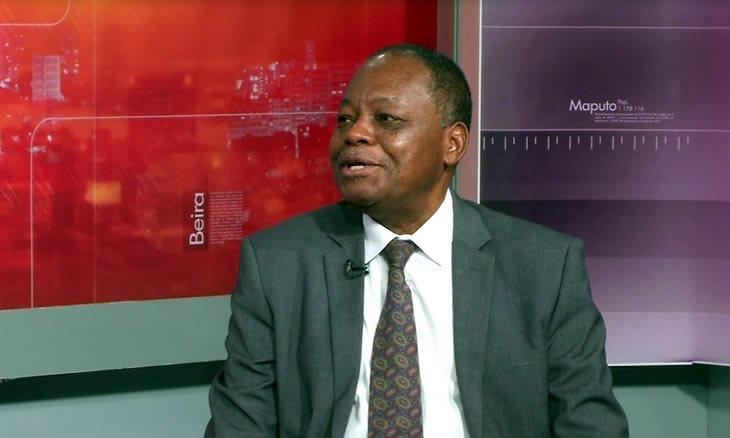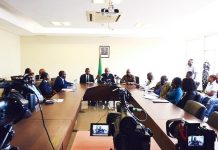Africa-Press – Mozambique. The Secretary-General of the Mozambican Society of Authors (SOMAS), José Manel, stated yesterday in Maputo that the reverend and musician Arão Litsure leaves a great legacy in culture and religion, where he stood out the most during his life.
Arão Litsure died early this Sunday (14) in neighboring South Africa, where he was hospitalized due to illness.
In his lifetime, he was a musician, president of the National Elections Commission (CNE), pastor of the United Congregational Church of Mozambique (ICUM), president of the Christian Council of Mozambique (CCM), and national director of Religious Affairs at the Ministry of Justice, Constitutional and Religious Affairs (MJACR).
José Manel clarifies that Arão Litsure dies at a time when a tribute was being prepared for him.
“Alongside religion and music, we can consider him a library. For us, it is a great pain, a loss, we, the members of the group he was part of for the great project ’10 years later’, had created a WhatsApp group to pay tribute to Litsure last year,” lamented Manel.
He added, “The tribute failed last year, and we were already thinking of resuming the project to pay tribute this year, and unfortunately the misfortune happened.”
Musician Roberto Chitsondzo mourns the death and considers Litsure an example of life to follow.
“We lost a person who was a mirror to us, he was someone who every day managed to bring a little hope to what our music is. […] and why not say that he was a person of God,” emphasized Chitsondzo.
As for the national director of Religious Affairs at MJACR, Saíde Abibo, the deceased leaves a legacy to be followed by everyone in the institution.
“Director Arão Litsure means a lot to our family at the Ministry of Justice, particularly here at the National Directorate of Religious Affairs, since he was our director. More than a director, he was a father, a teacher. With him, we learned valuable life lessons that still reflect our work today,” he said.
Born in Inhambane, Litsure grew up in Maputo, where he moved at the age of four. His mother was a choir conductor, and his father was a pastor.
His first contact with the guitar was in 1964, in the Chamanculo neighborhood of Maputo. Over time, he sang and played other instruments, including the saxophone.
In the 1980s, he co-founded the Alambique, as a result, as he said “of our musical growth – me and Hortêncio Langa.”
About this phase, Litsure said, “after a show in Jamaica, we were so impressed that we said our two guitars were not enough. We needed more elements, and the group started to include drummer Celso Paco, bassist Childo, and pianist Aderito Gomate.”
He recounted, “the Alambique is an instrument used to distill some alcoholic beverages, tho-tho-tho (cachaça), for example. But, in a positive sense, we wanted to say that by putting different substances in that container – jazz, African and Mozambican music – an original product comes out. We also chose the name Alambique because it rhymes with Mozambique and on trips, it was good to identify our country.”
In addition to Alambique, Litsure had a solo career, and in his album “10 years later,” he included the popular songs Malangavi, Nhina dzame, and Vukani vanhu va Jehova.
Besides being a musician, Litsure was a writer and published the book “Há Negros na Bíblia” (There Are Blacks in the Bible).
He graduated in theology in Zimbabwe.
For More News And Analysis About Mozambique Follow Africa-Press






